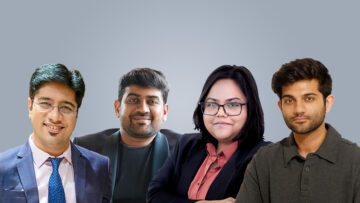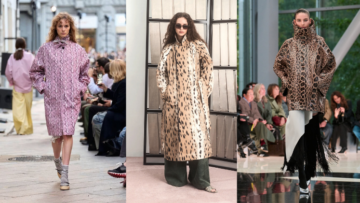 Amongst the top 10 in 2014’s Global 100 most sustainable corporations in the world, Germany-based Adidas is not only a world leader in footwear and sports goods manufacturing but also in its sustainability approach. What makes Adidas an ethical corporation, is its sound leadership and its commitment to embed sustainability in all of its products. From sustainable fibres such as recycled polyester to water-saving dyeing technologies such as DryDye, Adidas is reinventing to give the best to its customers. The Global leader shares with Apparel Online what makes it stand tall among the other sustainable companies…
Amongst the top 10 in 2014’s Global 100 most sustainable corporations in the world, Germany-based Adidas is not only a world leader in footwear and sports goods manufacturing but also in its sustainability approach. What makes Adidas an ethical corporation, is its sound leadership and its commitment to embed sustainability in all of its products. From sustainable fibres such as recycled polyester to water-saving dyeing technologies such as DryDye, Adidas is reinventing to give the best to its customers. The Global leader shares with Apparel Online what makes it stand tall among the other sustainable companies…
Ranked amongst the Top 50 Global Green brands in 2014 and being included in the Dow Jones Sustainability Indexes for 15 consecutive years, clearly reflects that Adidas’ approach of focusing on 4 pillars of sustainability: People, Product, Planet and Partnership – is working well for the company. These four pillars provide a conceptual framework that enables Adidas stakeholders consisting of 50,000 employees, suppliers, customers and communities to easily access and realize the Group’s sustainability efforts. “As a global company, the Adidas Group cannot afford to ignore the wider impacts of its business practices. We recognize our responsibility to be accountable to all our stakeholders, which involves regular and open reporting about our social and environmental performance,” informs Frank Henke, Global Director Social and Environmental Affairs at Adidas Group.

Under its first pillar, People, the Group positively influences its employees, factory workers and communities where they do business. The Group has signed the Bangladesh Fire and Building Safety Accord to work towards improving fire safety in factories and has also launched a third-party Complaint Mechanism in 2013 to address complaints on Human Rights for its employees, customers, factory workers and communities where it operates. Further, the ‘Fair Play Framework’ consists of policies, regulations, tools and processes that help prevent, detect and respond to compliance regulations. “The management of issues such as working conditions in global supply chains or the environmental performance of companies themselves is a complex challenge, requiring many factors to work together and play a role in achieving effective and sustainable solutions. There is no competition when it comes to sustainability,” claims Frank.
The Group also carries on various fair wage assessments in factories and has also started the SMS Hotline Service at a supplier’s factory in Indonesia to improve the engagement with workers. Progressively, Adidas is always finding better ways to create products, mainly through increased use of more sustainable materials and innovation. Amongst its many sustainable solutions is DryDye technology, which requires no water and uses 50 per cent less energy and fewer chemicals when compared to conventional dyeing. It has won awards recognizing it as ‘products of high ecological and sustainable values.’
To transform the way chemicals are used during manufacturing apparel, the company has partnered with Bluesign Technologies to come up with solutions that are environment- friendly. “Sporting goods, companies face many common issues, often complex and technical, and one such is managing the chemicals used in manufacturing products. So it makes sense to join forces with other parties in the industry to tackle them,” tells Frank. The Group has also announced its partnership with Pharrell William’s company Bionic Yarn to turn plastic debris from the oceans to yarn. Through various stakeholder partnerships, the group embarks on achieving its sustainability goals and achievements such as the increased use of virtual samples between 2010- 2013 allowed the company to save around 1.5 million samples. Going forward, the Group by 2018 has also committed to source 100 per cent of better cotton across all product categories to further its efforts.
The Adidas Group includes brands such as Adidas, Reebok, Rockport and Taylor Made with 50,728 employees worldwide. “We are not always perceived as being among the most sustainable companies in the sporting goods industry, which is fine, because we don’t engage in this field for the glory. We work behind the scenes, but if we believe that something is the right thing to do and it is good for the cause, we are not afraid to take bold decisions, even if the decision puts us under pressure.” – Frank Henke, Global Director Social and Environmental Affairs at Adidas Group
Laying emphasis on the environment, four additional locations of Adidas received ISO 14001 certification as part of the Green Company program, bringing the number of certified sites to 12. Moreover, to reduce environmental footprints, the Group has shared its environmental management system with supplier factories by funding carbon reduction projects through its sustainability venture capital fund and also provides Energy Management Training. Apart from People, Product and Planet, the company works through Partnership to achieve its sustainability goal.
For a transparent supply chain, Adidas had in advance published the list of factories manufacturing products for the 2014 FIFA World Cup Brazil. “Sharing information about our business practices gives stakeholders a real picture of where we stand in our sustainability programmes. This builds credibility and trust,” asserts Frank. The company is also a part of the Sustainable Apparel Coalition and is currently supporting the development and completion of the Higg 2.0 Index. In addition, the Group has collaborated with other brands to establish a more efficient industry-wide monitoring tool both for the brands and the suppliers.
Through all its above initiatives and many more, Adidas recognizes that to enhance the sustainability of the Group it is important to instil a set of social and environmental values which foster positive attitude and encourages awareness, innovation and responsibility amongst employees, customer, suppliers and communities. In the past two decades, the Adidas Group has made significant efforts to integrate sustainability measures in the company’s core operations. Along the way, the company has received recognition from customers and sustainability experts and is considered amongst companies that are driving this change. “As we say at the Adidas Group, Sustainability is like a marathon, not a sprint’. This bears in mind challenges and difficulties we often face to find sustainable solutions that balance shareholders expectations and social responsibilities and environmental needs,” concludes Frank.






